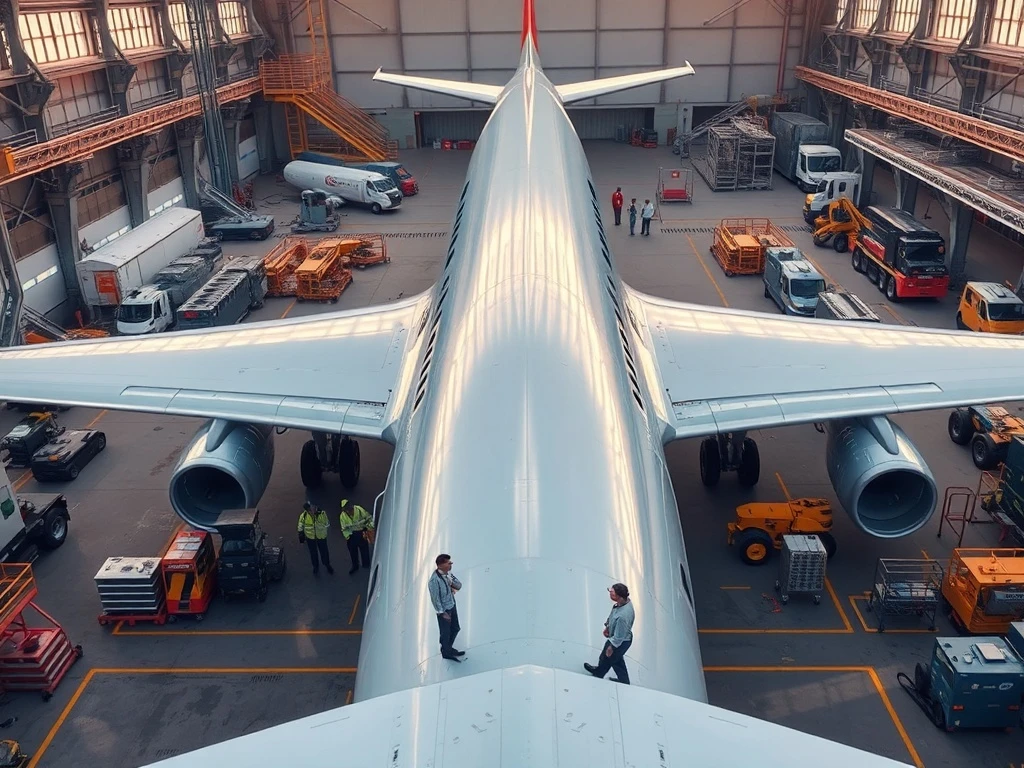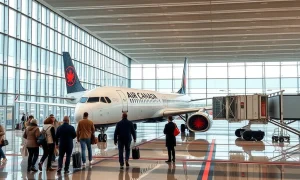The global aviation industry faces imminent disruption as 3,000+ Airbus workers in the UK overwhelmingly vote for strike action, potentially bringing worldwide jet production to a standstill. This critical labor dispute emerges precisely when Airbus targets record aircraft deliveries amid massive order backlogs.
Airbus Strike Threatens Global Supply Chain
Workers at Airbus’s Broughton plant in North Wales, responsible for manufacturing wings for all commercial aircraft, have authorized a 10-day walkout starting September 2nd. Consequently, this Airbus strike action could paralyze assembly lines across France, Germany, the US, and China. The Broughton facility serves as the crucial hub in Airbus’s international production network.
Pay Dispute Drives Airbus Strike Action
Months of negotiations between management and Unite union have failed to resolve the pay disagreement. Initially, Airbus offered a 3.6% increase for 2025 followed by 3.15% in 2026. However, union members rejected this proposal, demanding a one-year settlement that reflects:
- Current cost of living pressures
- Inflationary challenges
- Specialized workforce skills
- Company profitability
Production Targets at Risk from Airbus Strike
The timing of this Airbus strike couldn’t be more critical for the aircraft manufacturer. Currently, Airbus aims to deliver 820 aircraft in 2025, up from 735 last year. Furthermore, the company plans to reach 75 A320neo aircraft monthly by 2027. Any production disruption threatens these ambitious targets and could advantage competitor Boeing.
Union Demands and Company Response
Unite General Secretary Sharon Graham emphasizes that members seek “fairness, not favors.” Meanwhile, Airbus highlights previous generous settlements including 20% cumulative pay increases over three years and bonuses exceeding £13,000. Sue Partridge, Airbus UK’s head of commercial aircraft, states their priority remains finding a resolution that ensures long-term competitiveness.
Global Aviation Implications
This potential Airbus strike occurs during industry-wide pressure for increased aircraft production. Airlines worldwide demand new, fuel-efficient jets to meet growing travel needs. Consequently, any wing production bottleneck could delay deliveries across global aviation markets. Analysts note that while Airbus maintains wing reserves, prolonged disruption would ripple through its entire network.
Frequently Asked Questions
What triggered the Airbus strike vote?
Workers rejected pay offers they believe don’t reflect living costs, inflation, or their specialized skills, despite Airbus’s profitability.
When would the Airbus strike occur?
The 10-day walkout is scheduled to begin September 2nd if no agreement is reached.
Which Airbus locations are affected?
Primarily the Broughton plant in North Wales, with some involvement from the Filton site near Bristol.
How might this affect aircraft deliveries?
Wing production halts could disrupt global assembly lines, potentially delaying aircraft deliveries to airlines worldwide.
What are the union’s main demands?
A one-year pay settlement that properly values workers’ contributions and reflects current economic conditions.
Is there still time to avoid the Airbus strike?
Yes, both parties remain open to negotiations, though the union insists Airbus must improve its offer significantly.
















